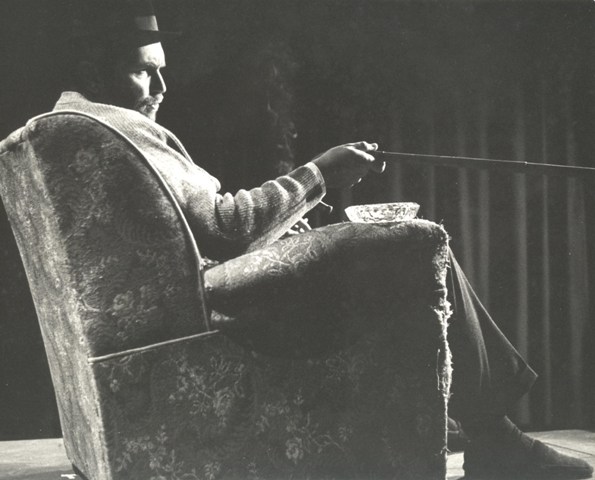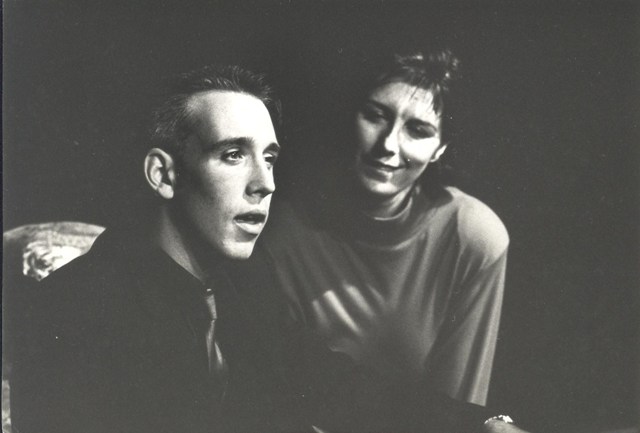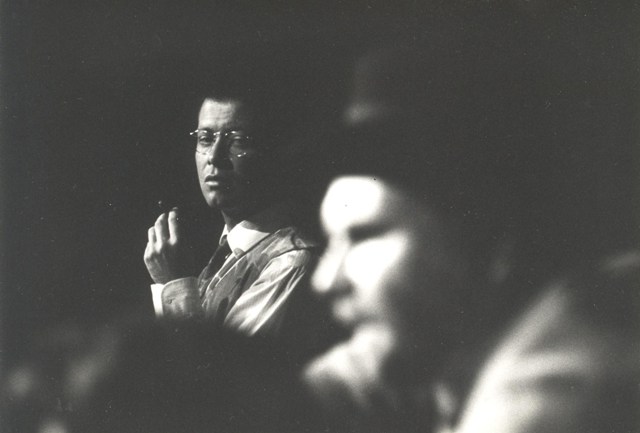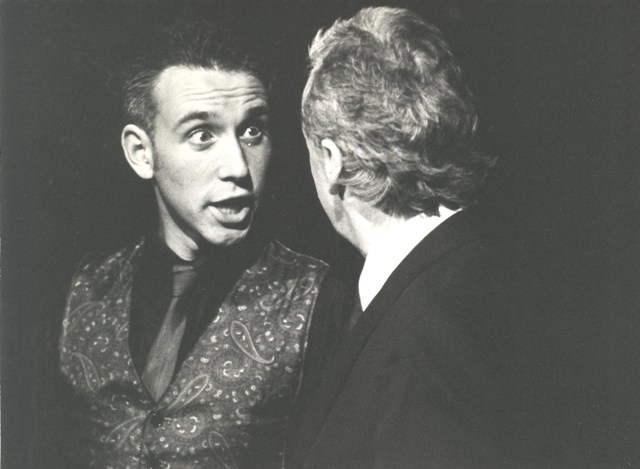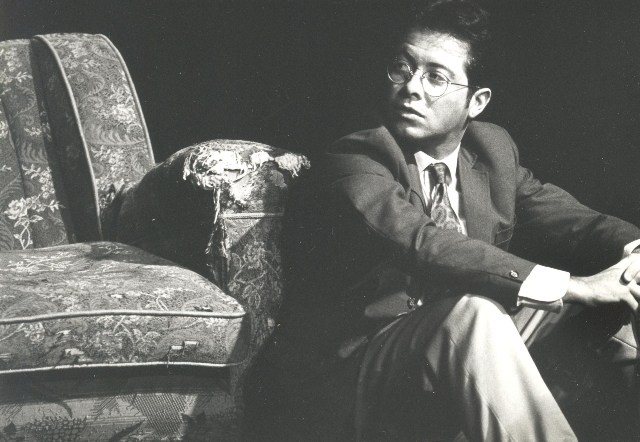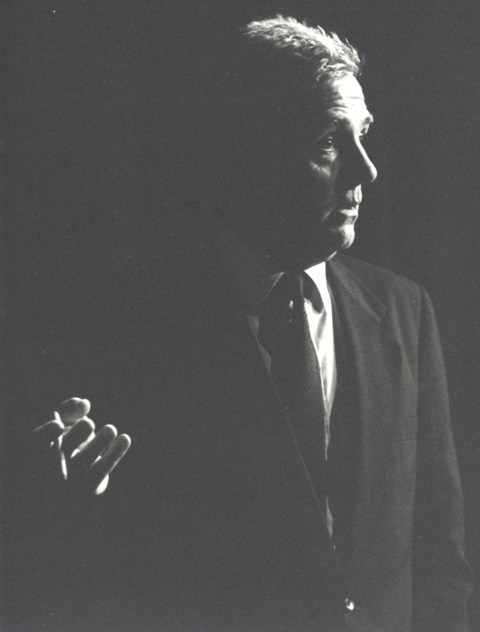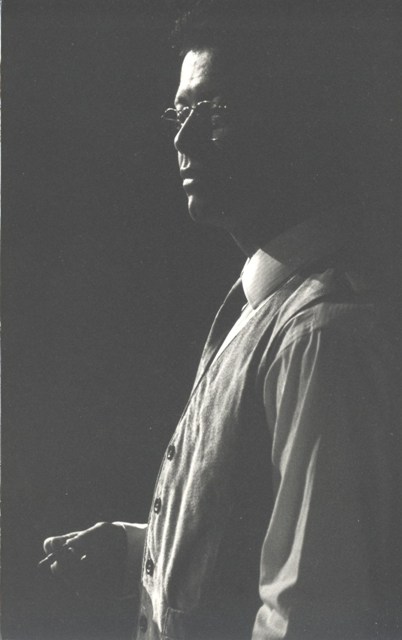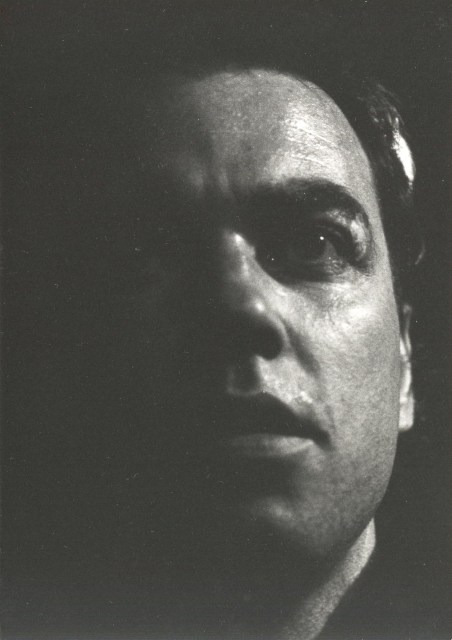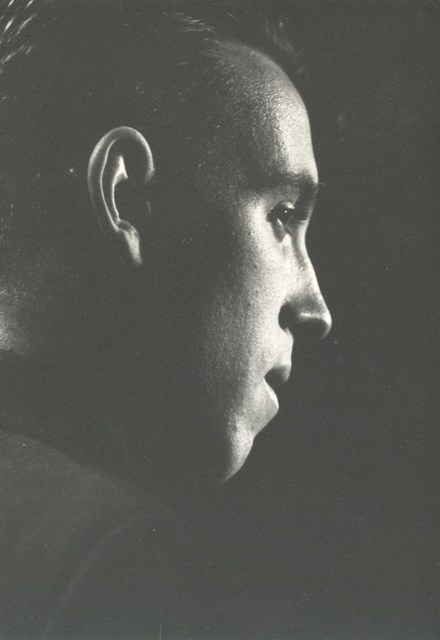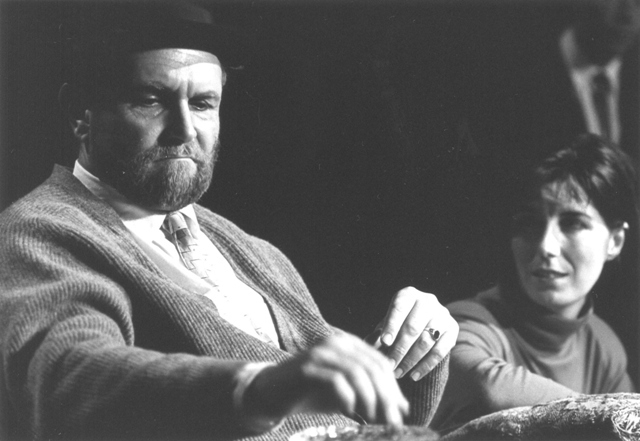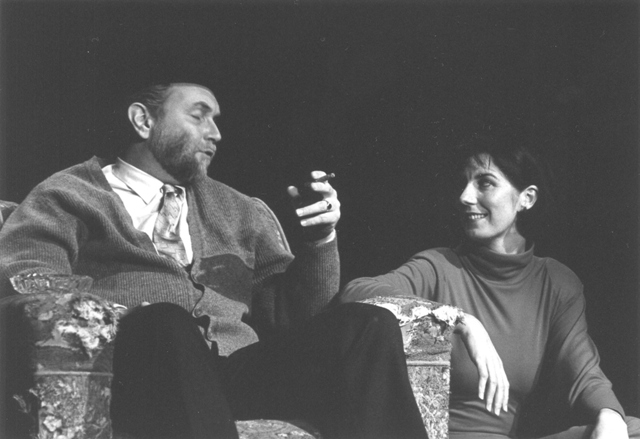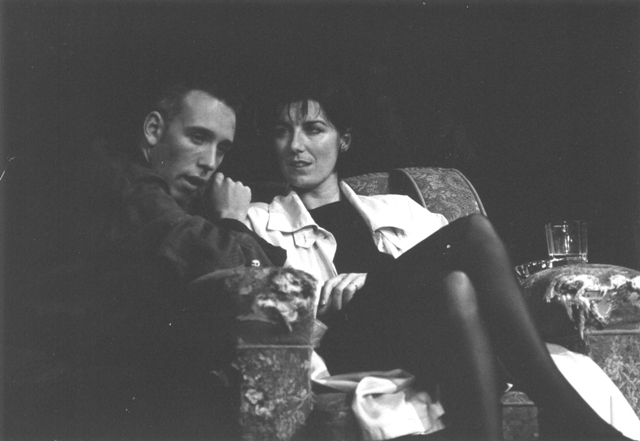The Bench Production
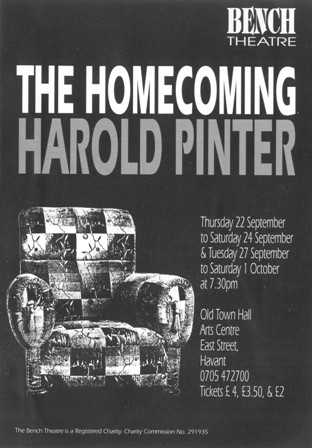
This play was staged at Havant Arts Centre, East Street Havant - Bench Theatre's home since 1977.
Characters
| Lenny | Neil Kendall |
| Max | David Penrose |
| Sam | Pete Woodward |
| Joey | Tony Ford |
| Ruth | Sally Hartley |
| Teddy | Alan Jenkins |
Crew
| Director | Neil Kendall |
| Stage Manager | Lindy Nettleton |
| Assistant Stage Manager | Andrew Ingle |
| Lighting Operation | Andrew Ingle |
| Sound | Jude Salmon |
| Poster | Peter Woodward |
| Front of House | Sally Hartley |
Director's Notes
Bench Theatre is in its twenty-fifth season, bringing you a wide range of classical and contemporary theatre. Following on from 'Oedipus Rex', The Dresser' and 'Habeas Corpus' we now offer a new interpretation of Pinter's brutal masterpiece, 'The Homecoming'.
New members and old make up the cast of the play which established Pinter as one of our greatest talents. Max loves his boys, or does he? The Butcher's sons have a taste for blood and change. Tensions will mount and revelations abound in this cautionary tale of family reunion.
Neil Kendall
Reviews
The NewsNeil Pugmire
Striking home with a Pinter masterpiece
Love him or loathe him, one thing that can be guaranteed in any Harold Pinter play is finely-chiselled dialogue interspersed with plenty of meaningful pauses. The Homecoming, widely regarded as one of his masterpieces, doesn't disappoint in this respect.
Each carefully-constructed sentence and poignant glance seems capable of being interpreted in a dozen different ways as the tension of a family reunion builds to its climax. The relationships between butcher Max, his brother and three sons are thrown into turmoil when Teddy brings his wife, Ruth, to see them after six years away. She becomes the focus through which the certainties of their old family roles are released by deep-seated insecurities. The conversation rarely strays from the minutiae of the domestic life throughout, but the meanings are communicated in subtler ways.
Director Neil Kendall uses a bare stage, apart from Max's paternal armchair on a platform. Inevitably it forms the pedestal from which Max is eventually toppled at the head of the family's hierarchical structure.
Sally Hartley is wonderfully manipulative as Ruth, using all her womanly wiles to the full, while Alan Jenkins's Teddy is so uncomfortable, the audience is left squirming with embarrassment. Davis Penrose is top class, fitting easily into the slippers and cardigan of a very Jewish Max, and Peter Woodward's Sam is a well-observed Cockney chauffeur.
But while Neil Kendall's direction is spot-on, if anything his character, would-be manipulator Lenny, has too much intensity combined with slack-jawed stares. With this cast and author, the audience doesn't need to be reminded that every phrase has added significance.
The News, 26th September 1994
